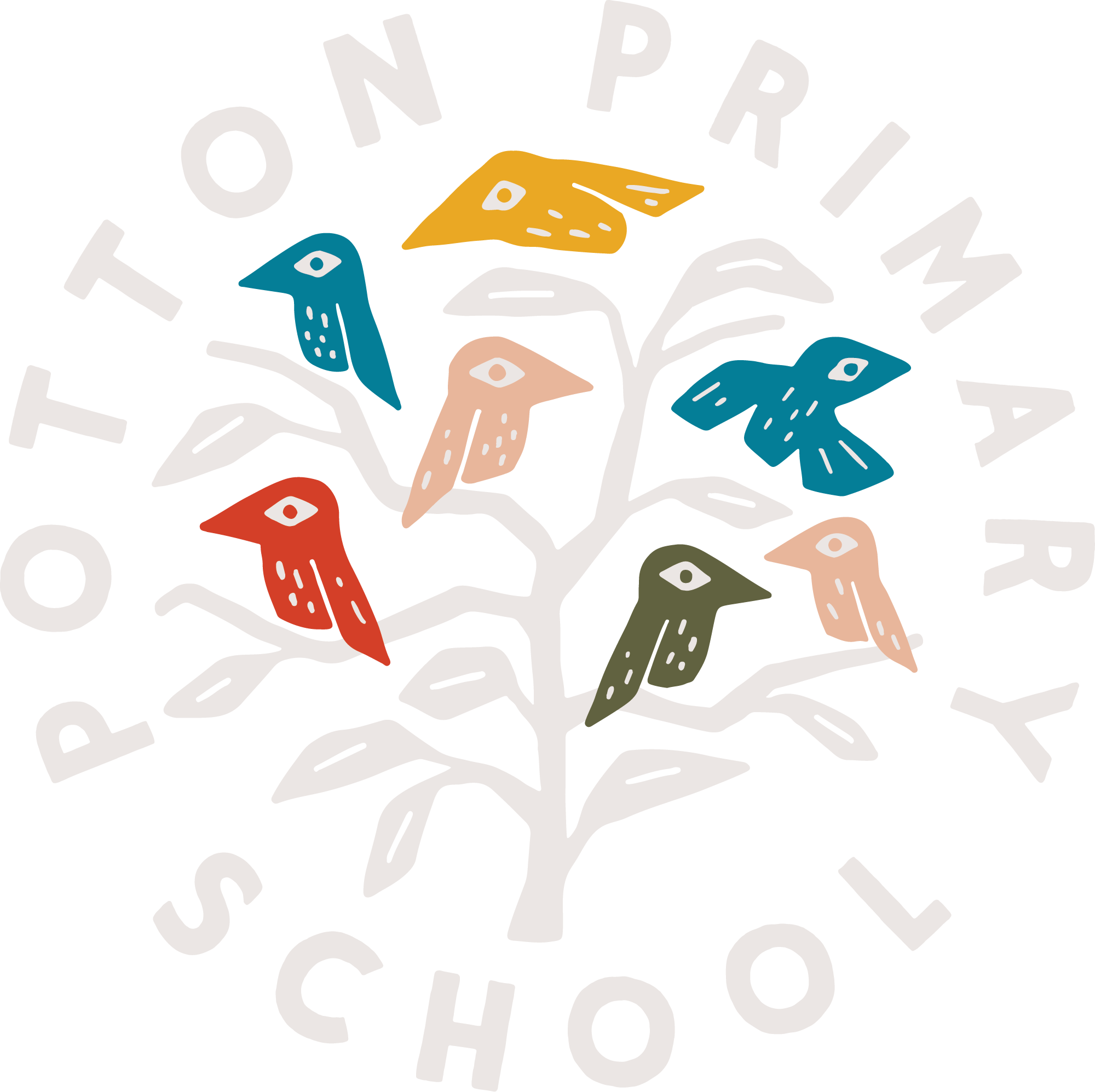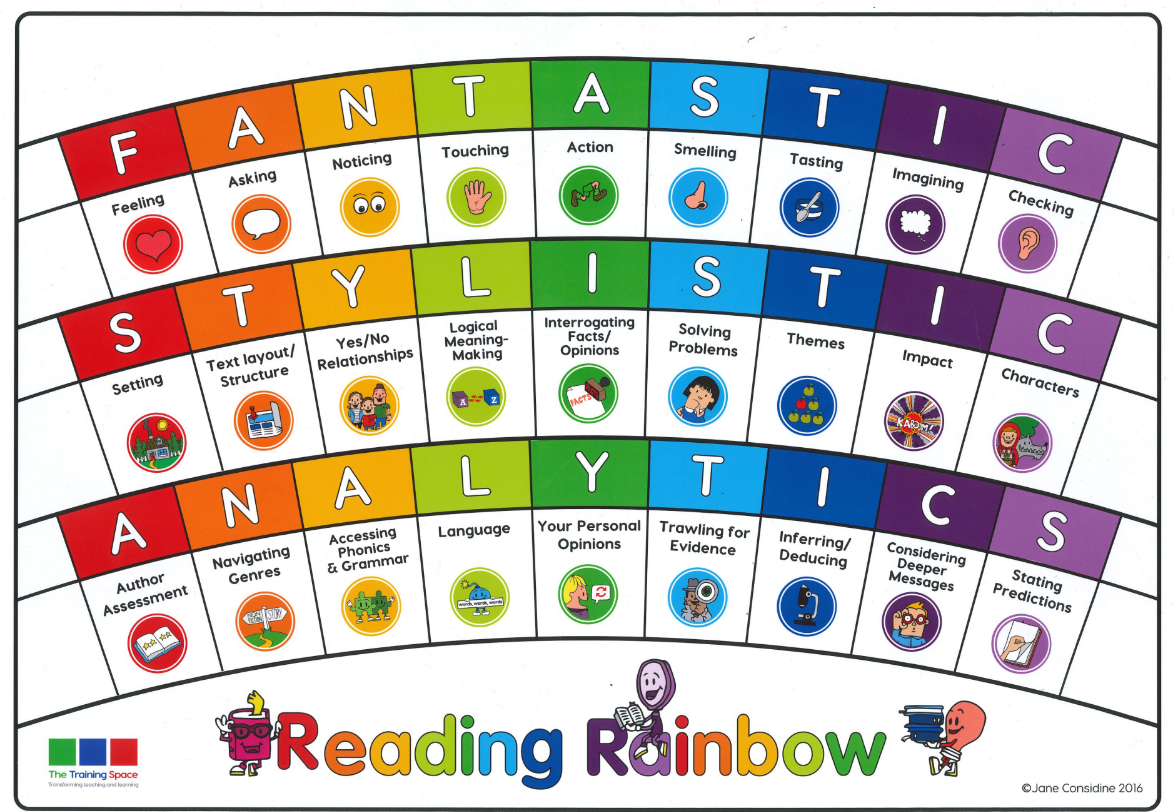Reading & Phonics
Speaking and Listening
Spoken language underpins the quality and variety of language that pupils hear and speak. It is vital for developing pupils’ vocabulary and grammar and their understanding of reading and writing. As a school, we will ensure the continual development of pupils’ confidence and competence in spoken language and listening skills. Children are given opportunities to explore their thinking skills through discussion, debate, drama and role-play. In order to do this, the basic skills have to be mastered and the practice of them must be consistent, progressive and well-balanced in line with the National Curriculum.
Reading
Reading is the most vital skill learnt in the early years of school. Through reading, pupils have a chance to develop culturally, emotionally, intellectually, socially and spiritually. There are two strands of reading; being able to read words and being able to understand the meaning of words and sentences. Our school's aim is for pupils to be fluent and independent readers by the time they leave Potton Primary School, with a love of literature and books.
We understand and recognise that pupils will develop at a different rate. Therefore, strategies and approaches will be adapted to meet the needs of your child. Our phonics approach is the Sounds-Write scheme, which is based on the most effective ways that children learn to read and write. Emphasis is also put on children learning high-frequency words to support their reading and writing.
We use various reading schemes and a colour code system whereby all children can be matched with text appropriate to their reading age level. The school has a well-stocked library from which children choose a book each week. Parents are actively encouraged to be involved in the process of reading with their children and books are regularly taken home to be enjoyed together.
Phonics
Children follow our structured Sounds-Write scheme from entering school in Reception. This scheme teaches children to blend, segment and manipulate sounds in words independently.
Sounds-Write is acknowledged by the DfE as meeting all its criteria for an effective phonics teaching programme.
Sounds-Write’s instructional method works effectively because it:
- can be easily implemented in the classroom with the minimum of expense, planning and preparation
- provides clearly structured, easy-to-follow lesson plans
- is developmentally appropriate for beginning readers in Reception, Year One and Year Two
- offers fast and highly effective intervention for children at all levels who have fallen behind in their reading and spelling
- is a phonic programme that teaches in simple steps how the sounds of the language are represented by the writing system
- places emphasis on giving practice that is grounded in physical, concrete experience of the ideas and conceptual understanding the pupils need to assimilate
- teaches the three essential skills of segmenting, blending and phoneme manipulation necessary for reading and spelling throughout the programme on a daily basis until all pupils achieve the automaticity that underlies the fluency of every successful reader.
In Reception and Year 1, pupils have a daily phonics lesson. In Year 2, pupils use and apply their phonic knowledge to consolidate their learning. Additional phonics sessions are taught in Year 2 and Key Stage Two as required for individuals.
We have made this video for supporting Phonics learning at home
Phonics presentation – YouTube
Reading Comprehension
Reading is crucial to children’s development and potential for success in life. Research shows that children who read books often at age 10 and continue to read through adolescence, gain higher results in maths, vocabulary and spelling tests at age 16 than those who read less regularly.
Nothing is more important in education than ensuring that every child can read well. Pupils who can read are overwhelmingly more likely to succeed at school, achieve good qualifications, and subsequently enjoy a fulfilling and rewarding career. Those who cannot will find themselves at constant disadvantage.
At Potton Primary School we follow the Hooked on Books scheme for guided reading. Hooked on Books, transforms the teaching of reading in the primary education phase and provides structures for success.
Key aspects of the Hooked On Books system include:
- Book Talk – a whole class comprehension and a targeted group approach, ensuring all individuals are accountable
- The Reading Rainbow – a fully comprehensive approach that targets reading competencies, covers the National Curriculum and develops understanding
- Demonstration Reading – the art of modelling the internal thinking of a reader. This is to demonstrate how a reader thinks during the process of ‘reading for meaning’
- Demonstration Comprehension – clear, out loud thinking by the teacher whilst modelling answers to questions and showcasing ‘thesaurus thinking’ to ensure the most precise words are used

